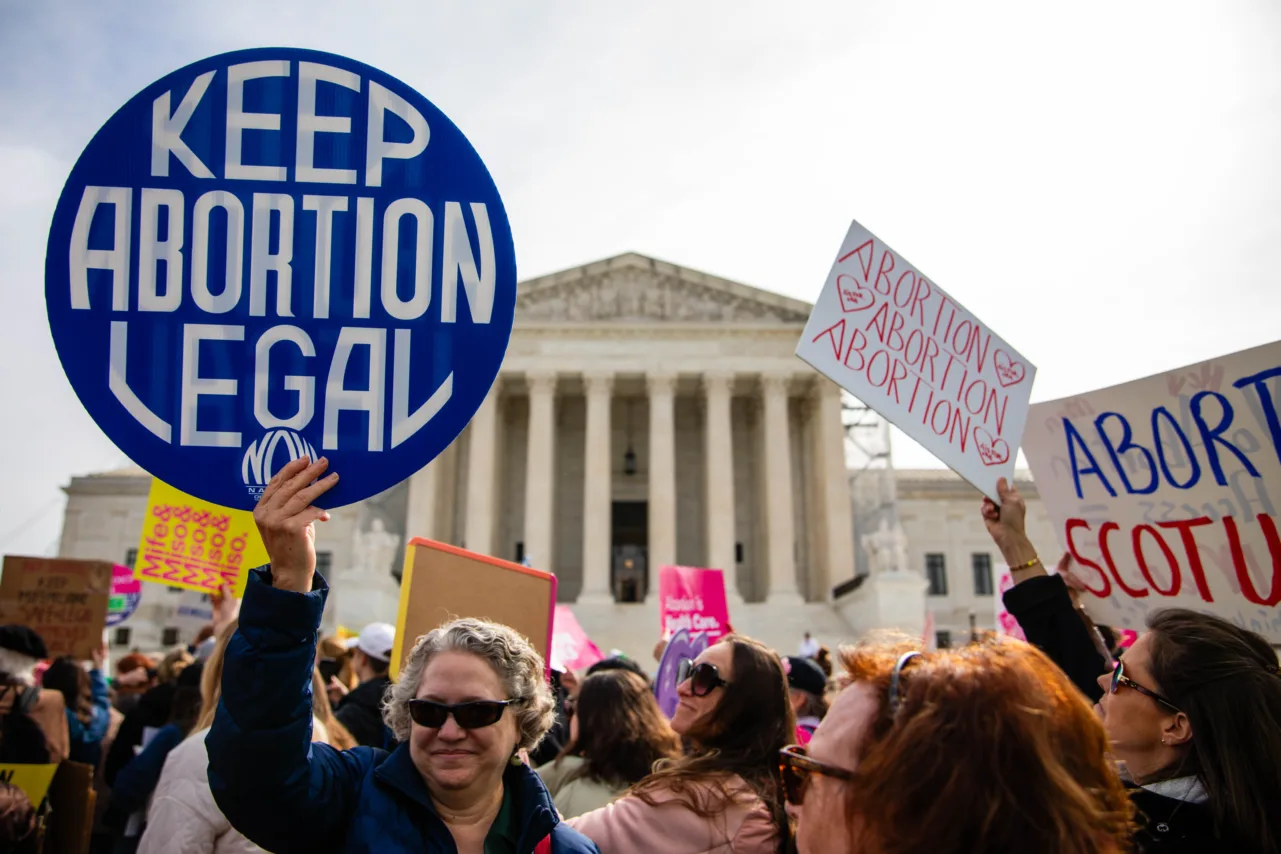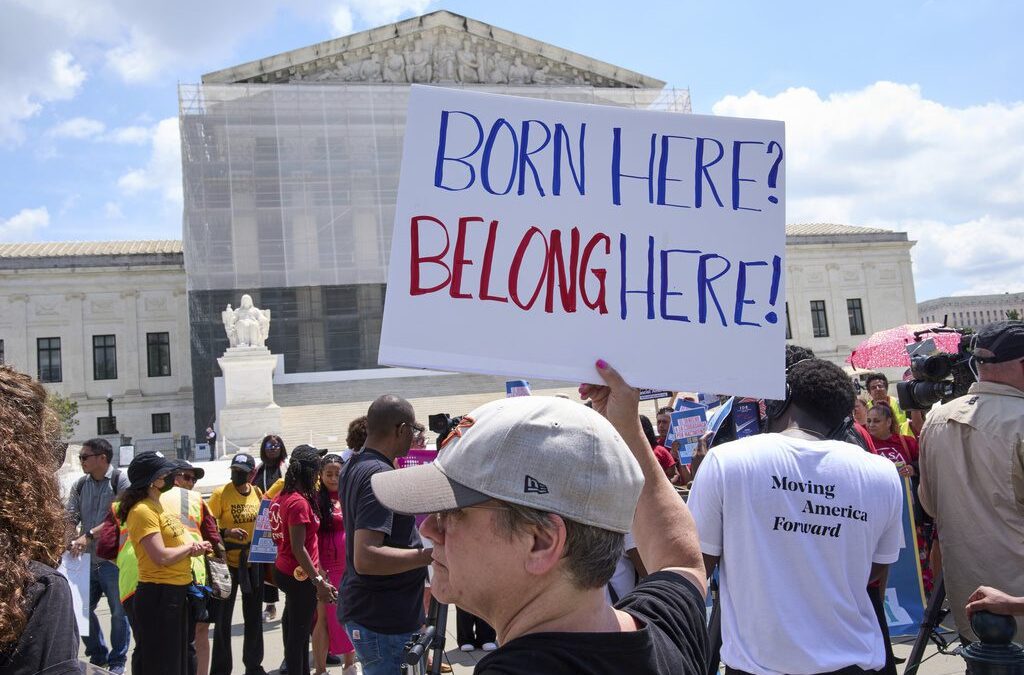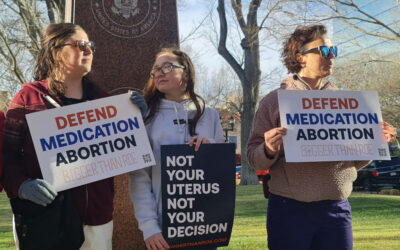
Reproductive rights advocates outside the US Supreme Court on Mar. 26, 2024. (Photo: Sean Kitchen)
The Supreme Court on Tuesday heard oral arguments on a case that will ultimately decide the future of mifepristone access in the United States.
Mifepristone, along with another drug, misoprostol, is approved through 10 weeks of pregnancy, and is used in more than half of abortions nationwide; it’s the most commonly-used method of abortion in the country.
Access to mifepristone was called into question last year, when US District Judge and Trump appointee Matthew Kacsmaryk sided with Christian conservatives who filed a lawsuit seeking to reverse the FDA’s 2000 approval of mifepristone.
Kacsmaryk—a far-right judge with a history of anti-abortion views—ordered a complete hold of the federal approval of the drug, overruling decades of scientific approval precedents and hundreds of studies documenting the drug’s safety in abortion care.
A federal appeals court partially blocked Kacsmaryk’s decision, maintaining mifepristone’s availability, but limited access in ways that could harm patients seeking abortion care.
The Supreme Court then stepped in and agreed to hear the case.
Hundreds of reproductive rights advocates rallied outside the US Supreme Court in Washington DC on Tuesday as the court listened to oral arguments.
“There is so much going on in our country that it’s imperative to do something,” Ginger Agnew, a Pennsylvania resident, said in an interview after arriving at Union Station. “I actually had to have an abortion for health care reasons. I wanted the baby.”
This case, Alliance for Hippocratic Medicine v. US Food and Drug Administration, is significant for a number of reasons. It’s the first time the right-wing Court has listened to a case relating to abortion access since their decision to overturn Roe v. Wade in the Dobbs decision, for example.
If the Court restricts access to mifepristone later this year, more than 64.5 million Americans will face additional restrictions to abortion care, according to Reproductive Freedom for All. A potential ruling could impact the medication’s distribution, even in states where abortion is legal, and force those seeking abortion to travel to an abortion provider to pick up mifepristone—which, especially in rural areas, could mean a very long trek.
In New Hampshire, abortion is currently legal up until 24 weeks of pregnancy.
Both health clinics and doctors have said that if mifepristone is pulled from the market, they’ll be forced to prescribe just misoprostol, which has a lower rate of effectiveness. Legal experts have said that this ruling could “upend decades of precedent” and could “set the stage for political groups to overturn other FDA approvals of controversial drugs and vaccines.”
“This has never happened before in history,” Greer Donley, a professor specializing in reproductive health care at the University of Pittsburgh Law School told the Associated Press last year. “It’s a huge deal.”
Additional reporting by Sean Kitchen, The Keystone.

‘When moms thrive, families thrive’: New law expands support for New Hampshire parents
New Hampshire’s new Momnibus 2.0 law expands maternal mental health care, postpartum depression screenings, and family support services after years...

Supreme Court limits nationwide injunctions, but fate of Trump birthright citizenship order unclear
WASHINGTON (AP) — A divided Supreme Court on Friday ruled that individual judges lack the authority to grant nationwide injunctions, but the...

Trump administration revokes guidance requiring hospitals to provide emergency abortions
WASHINGTON (AP) — The Trump administration announced on Tuesday that it would revoke guidance to the nation's hospitals that directed them to...

Critics say proposed NH education bill pushes anti-abortion message through classroom videos
A bill making its way through the New Hampshire legislature would require schools to show a “high-quality computer-generated animation or...

House GOP fast-tracks budget bill that would cut off Medicaid funding to Planned Parenthood
The budget package proposes steep health care cuts—and includes a new push to block patients from accessing reproductive care. In a 30-24 party-line...

New Hampshire clinics lose Title X funding, threatening access to reproductive health care
Planned Parenthood of Northern New England is on Trump’s list of clinics to lose Title X funding. Every year, more than 11,000 New Hampshire...




